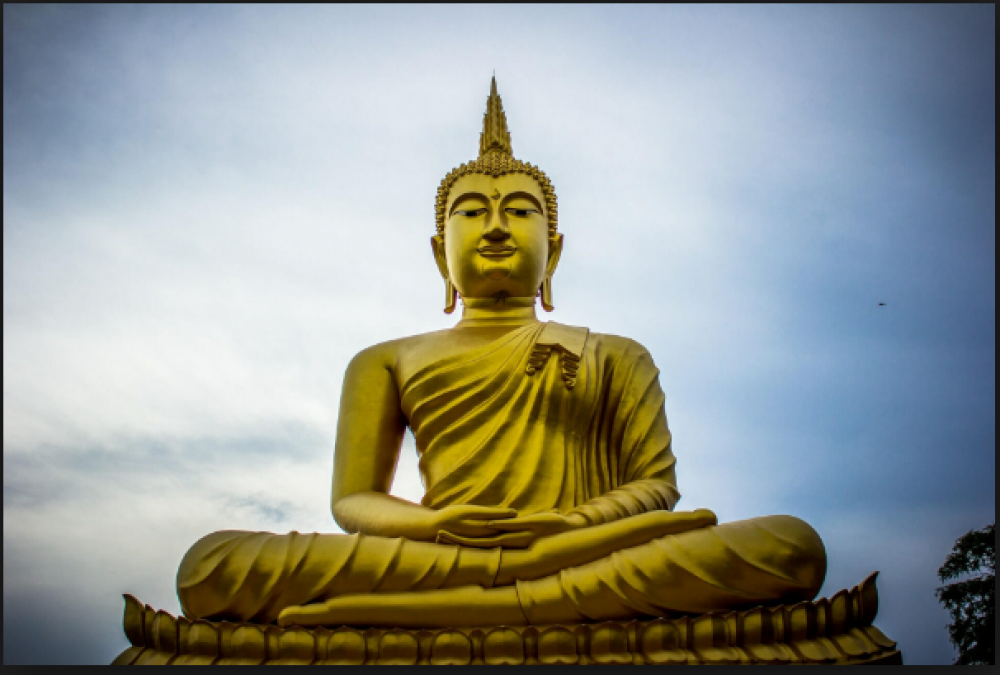
Buddhism is a religion based on the teachings of Siddhartha Gautama, who was born in the fifth century B.C. in what is now Nepal and northern India. He came to be called "the Buddha," which means "awakened one," after he experienced a profound realization of the nature of life, death, and existence. In English, the Buddha was said to be enlightened, although in Sanskrit it is "bodhi," or "awakened."
Basic Teachings
In spite of its emphasis on free inquiry, Buddhism might best be understood as a discipline and an exacting discipline at that. And although Buddhist teachings should not be accepted on blind faith, understanding what the Buddha taught is an important part of that discipline.
The foundation of Buddhism is the Four Noble Truths:
The truth of suffering ( "dukkha")
The truth of the cause of suffering ( "samudaya")
The truth of the end of suffering ( "nirhodha")
The truth of the path that frees us from suffering ( "magga")
also read Sikhism is different from Hinduism in these things
By themselves, the truths don't seem like much. But beneath the truths are countless layers of teachings on the nature of existence, the self, life, and death, not to mention suffering. The point is not to just "believe in" the teachings, but to explore them, understand them, and test them against your own experience. It is the process of exploring, understanding, testing, and realizing that defines Buddhism.
Diverse Schools of Buddhism
About 2,000 years ago Buddhism divided into two major schools: Theravada and Mahayana. For centuries, Theravada has been the dominant form of Buddhism in Sri Lanka, Thailand, Cambodia, Burma, (Myanmar) and Laos. Mahayana is dominant in China, Japan, Taiwan, Tibet, Nepal, Mongolia, Korea, and Vietnam. In recent years, Mahayana also has gained many followers in India. Mahayana is further divided into many sub-schools, such as Pure Land and Theravada Buddhism.
Vajrayana Buddhism, which is chiefly associated with Tibetan Buddhism, is sometimes described as a third major school. However, all schools of Vajrayana are also part of Mahayana. The two schools differ primarily in their understanding of a doctrine called "anatman" or "anatta." According to this doctrine, there is no "self" in the sense of a permanent, integral, autonomous being within an individual existence. Anatman is a difficult teaching to understand, but understanding it is essential to making sense of Buddhism.
Basically, Theravada considers anatman to mean that an individual's ego or personality is a delusion. Once freed of this delusion, the individual can enjoy the bliss of Nirvana. Mahayana pushes anatman further. In Mahayana, all phenomena are void of intrinsic identity and take identity only in relation to other phenomena. There is neither reality nor unreality, only relativity. The Mahayana teaching is called "shunyata" or "emptiness."
Wisdom, Compassion, Ethics
It is said that wisdom and compassion are the two eyes of Buddhism. Wisdom, particularly in Mahayana Buddhism, refers to the realization of anatman or shunyata. There are two words translated as "compassion": "metta and "karuna." Metta is a benevolence toward all beings, without discrimination, that is free of selfish attachment. Karuna refers to active sympathy and gentle affection, a willingness to bear the pain of others, and possibly pity. Those who have perfected these virtues will respond to all circumstances correctly, according to Buddhist doctrine.
Misconceptions About Buddhism
There are two things most people think they know about Buddhism—that Buddhists believe in reincarnation and that all Buddhists are vegetarian. These two statements are not true, however. Buddhist teachings on rebirth are considerably different from what most people call "reincarnation." And although vegetarianism is encouraged, in many sects it is considered a personal choice, not a requirement.
also read Time of your birth reveals about your future and Career; Know what is in your fate